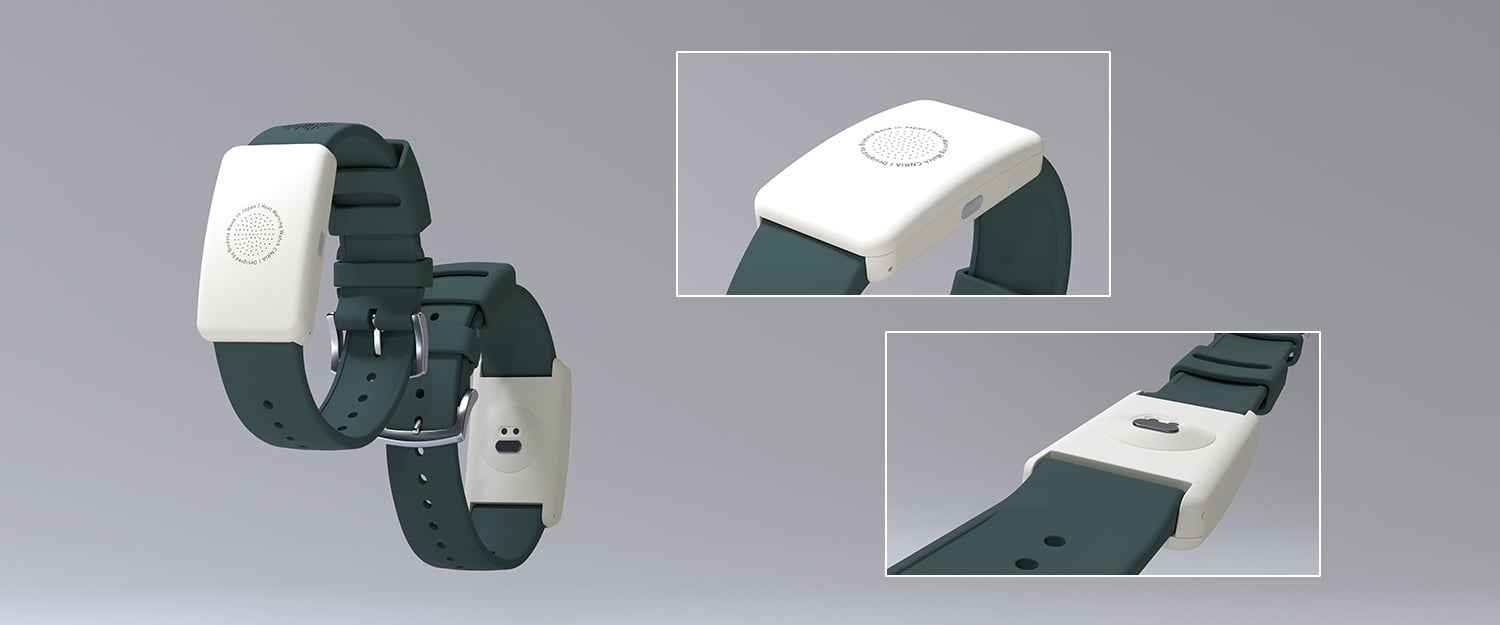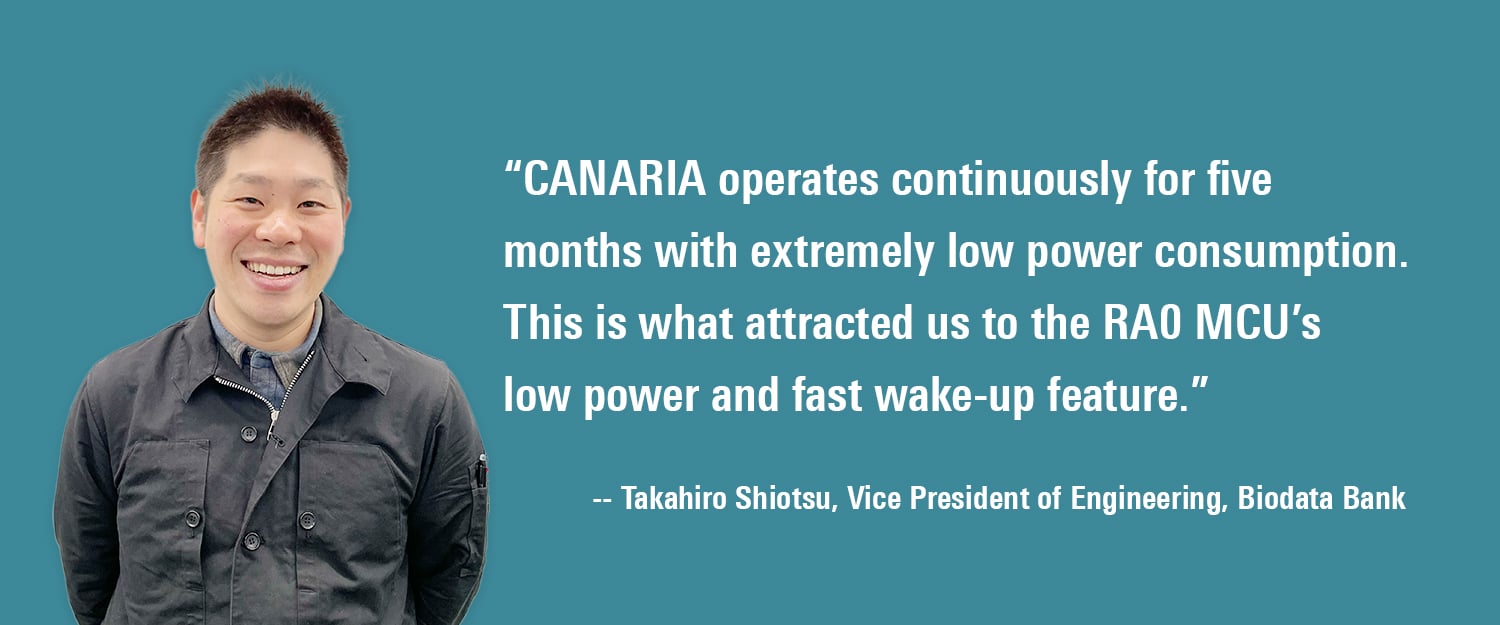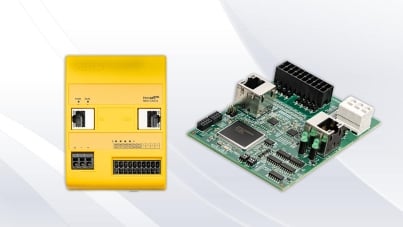Apr 22, 2025
Heatstroke is a killer. One of the world’s oldest diagnosed medical conditions, the first recorded heatstroke remedy dates to the works of Hippocrates in 400 B.C. It is especially poignant, then, to know that nearly half a million people around the globe still succumb to heatstroke each year. In the summer of 2022, deaths from heat exposure topped 61,500 in Europe alone.
The intensifying effects of climate change are exacerbating what the World Health Organization (WHO) calls a global health hazard, especially among the very young, the very old, people with chronic illnesses and those who work outdoors.
Biodata Bank was founded in 2018 in Tokyo. With a naturally hot and humid environment, Japan has seen a spike in heatstroke incidents over the past 30 years and now reports about 1,000 deaths annually. In April, Japan’s Cabinet moved to cut heatstroke fatalities in half by 2030 by requiring companies to adopt preventative measures.
Specifically established to develop technology to detect and reduce heat risk, Biodata Bank launched its signature CANARIA heat warning watch in 2020 and has sold more than a million devices to over 2,000 corporate customers, primarily serving businesses in the construction, power, petroleum and automotive industries, in addition to emergency first responders.
Takahiro Shiotsu, whose own grandfather lost his life to heat shock, is Biodata Bank’s vice president of engineering. He observed that treatment options haven’t changed much over millennia and still largely consist of water, salt tablets and resting in the shade.
Shiotsu shared that Takeshi Anzai, the founder and CEO of Biodata Bank, began the company's journey by consulting physicians to gain a deeper understanding of heatstroke symptoms. According to the WHO, the risk increases when core body temperature rises above 38°C (100.4°F).
The condition has three escalating classifications:
- Dehydration: A decrease in body fluid levels, leading to symptoms such as dizziness and nausea
- Hyponatremia (low sodium levels): Symptoms include muscle cramps, dizziness and nausea
- Heatstroke: An increase in core body temperature that can be fatal in severe cases
“Initially, many professors said it was impossible to measure core body temperature using a non-invasive method, but we kept trying,” Shiotsu said. “Finally, we found a way to predict it by detecting the increase, or fluctuation, in temperature and heat flux at the skin’s surface. Core body temperature can fluctuate by more than 1°C due to individual physiology and time of day. Based on the WHO standard of 38°C, we’ve developed an algorithm that intelligently assesses each user’s individual condition, detecting core body temperature changes to accurately calculate heatstroke risk.”
Global Field Tests Prove CANARIA’s Efficacy
CANARIA, so named because its early warning feature is akin to a canary in a coal mine, is activated with the flip of a switch. When the watch detects an unsafe increase or fluctuation in core body temperature, it vibrates and triggers a warning light and sound.
“Our patented technology positions multiple temperature sensors in a specific arrangement to measure heat flux – the transfer of heat in and out of the skin surface,” Shiotsu said. “By measuring both surface temperature and heat flux, we can accurately predict core body temperature trends.”

Biodata Bank tested the watch and compiled data from more than 800 participants across 25 companies in Europe. It opened an office in Paris where it ran field trials with a large French construction firm and more recently has been working with an oil company in Saudia Arabia. Customers include Airbus, Edison Next Spain and Sumitomo Forestry.
French aerospace manufacturer Airbus conducted a trial at Airbus Toulouse from June to September 2023 with 150 volunteer employees who had a potential risk of heat exposure. The trial, which was overseen by Airbus France in-house physician, by Dr. Delphine Bouvet, and assisted by Duy Phan, a hygiene and safety specialist, was designed to evaluate CANARIA Watch as part of the company’s prevention and occupational health services program following the searingly hot summer of 2022.
“The results of our trial reinforce the idea that this device is a relevant solution that fully belongs in an overall approach to heatstroke prevention at Airbus,” Airbus said in its statement.
Renesas Lends Expertise Through Low-Power RA0 MCU and Design Support
CANARIA weighs just 30 grams, is heat-resistant to 80°C and uses a single battery with a five-month operating life. Shiotsu said the company worked closely with Renesas to balance performance and power consumption. Ultimately, Biodata Bank became the first customer for the Renesas 32-bit RA0 microcontroller series, which is based on the Arm® Cortex®-M23 processor and delivers the industry’s lowest power consumption for general-purpose 32-bit MCUs.
“CANARIA is designed with a strong focus on ease of use. Once powered on, it operates continuously for five months, offering a hassle-free experience,” Shiotsu said. “To achieve this, the device must run with extremely low power consumption. This is what attracted us to the RA0 MCU’s low power and fast wake-up feature, which enables the device to stay in sleep mode for longer periods.
“We also received tremendous support from Renesas for both hardware and software. The Renesas FAEs were very knowledgeable and helpful in accompanying us from component selection to development, which enabled us to smoothly launch the product after only a short period.”

CANARIA Takes Flight with Plans for New Device Features
Biodata Bank expects to generate additional interest among governments and educational institutions. Classrooms in the U.S., for example, typically lack air conditioning, while in Japan and many other countries, students often walk long distances to school in extreme heat. Even in colder climates, CANARIA provides relief for those working in high-temperature industries such as metal casting and steel manufacturing.
A future version of CANARIA is expected to incorporate Renesas’ SPI NOR flash memory, which is designed to minimize MCU overhead and delivers an 85 percent reduction in energy consumption compared to typical flash solutions. Future models could enable real-time data collection and analysis using a wireless communication such as LPWA. By sending data wirelessly to a central collection point, Biodata Bank said managers in the field could use the information to pause work and protect employees before conditions become unsafe.
“At one time, the only available countermeasures in hot environments were drinking water and eating salt candies,” Shiotsu said. “There were no scientifically based methods for analyzing and implementing timely interventions. Among the companies that have adopted CANARIA, the severity of heatstroke cases has already decreased significantly.”



